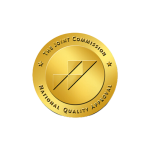What You'll Learn:
- Introduction to the mechanics of missing links analysis.
- Unpacking its applications in addiction prevention.
- Detailed strategies to maximize the efficacy of missing links analysis for robust relapse protection.
- American Recovery's holistic approach to employing this transformative method.
Deciphering Missing Links Analysis
When one mentions missing links analysis, the connotation may initially seem abstract or overly technical. Yet, the principle it encapsulates is rooted in something both innate and universal. Missing links analysis systematically scours for gaps or "missing links" that could undermine our grasp of or response to a problem. When applied to addiction, this technique surfaces overlooked vulnerabilities in one's recovery pathway, offering a vital lifeline.
The Chain Analogy: An Immersive Glimpse into Addiction Recovery
Addiction recovery is a complex journey, often filled with ups and downs, twists, and turns. To truly understand the process, we turn to the Chain Analogy – a powerful way to immerse ourselves in the experience of recovery. Imagine the intricate journey of recovery as a chain, forged with intention and perseverance. Each link represents a vital phase, a tried-and-true strategy, or a cherished support pillar. However, a single weakened or missing link risks the chain's integrity. Herein lies the genius of integrating missing links analysis within addiction recovery. Beyond mere identification of vulnerabilities, it's about proactive reinforcement, warding off potential relapse avenues before they gain momentum.
A Deeper Dive into Missing Links Analysis
Addiction is not merely about substance abuse; it's an intricate dance of emotions, behaviors, and underlying issues. For those with unresolved issues, seeking therapy or counseling is pivotal. Professionals can provide tailored guidance to address unique needs. Relapse doesn't emerge out of a vacuum. It's often the culmination of ignored or unrecognized red flags that intensify over time. Regular introspection can spotlight these early, facilitating timely interventions. By no means a passive concept, this method transforms into a tangible, resilient bastion against relapse when actively woven into recovery.
Engaging External Perspectives
Our self-perceptions can be skewed by emotional states or ingrained biases. Your support network—whether friends, family, counselors, or mentors—offers fresh, often illuminating perspectives. External perspectives can hold you accountable for your actions and commitments in your recovery journey. Knowing that others are watching and supporting your progress can be a powerful motivator. Their external vantage can highlight unnoticed vulnerabilities, granting you a more rounded view of your recovery journey. Different people may suggest diverse approaches and strategies for overcoming addiction. Exploring these options can help you find the methods that work best for you.
Holistic Recovery Blueprint
Addiction recovery is not a one-size-fits-all journey; it's a deeply personal and transformative process. The Holistic Recovery Blueprint embraces the understanding that true healing encompasses not just the cessation of addictive behaviors but a comprehensive transformation of mind, body, and spirit. Recovery begins with the mind. It involves recognizing and addressing the underlying emotional and psychological factors that contribute to addiction. A piecemeal recovery approach risks oversight. In contrast, a comprehensive plan integrates therapy, community support, medical aid, and lifestyle shifts, crafting an interwoven, robust defense against potential relapses.
Continuous Education
As we evolve, so do our needs. Continuous education provides you with knowledge about addiction, recovery strategies, and the tools needed to navigate the complexities of sobriety. Understanding the science and psychology of addiction can empower you to make informed decisions. Self-discovery and self-awareness can guide your healing journey. Attending workshops, seminars, or even online courses can be invaluable in this regard. Explore literature on addiction and recovery. Many books and articles offer valuable insights, personal stories, and practical advice.
The Shift from Reactive to Proactive Recovery
The true magic of missing links analysis lies in its proactive nature. It isn’t about merely responding—it’s about anticipation. It pre-equips you, ensuring that your recovery journey remains unmarred by unforeseen relapse triggers, giving you a distinct edge.
American Recovery: At the Forefront of Innovation
Our relentless pursuit at American Recovery revolves around offering unprecedented support. We're not just tethered to traditional methods. We embrace revolutionary techniques, incorporating practices like missing links analysis to ensure our community receives the best. Our seasoned team is primed to guide you, ensuring that no stone is left unturned in safeguarding your recovery journey.
Recovery, though deeply rewarding, is replete with challenges. Yet, armed with the right strategies and unwavering support, these very challenges transform into invaluable growth catalysts. American Recovery is poised to be your steadfast ally. For those seeking to meticulously understand and reinforce every aspect of their recovery, reach out to us at 866-484-2502. Together, we can architect a recovery narrative that’s resilient, informed, and refreshingly relapse resistant.


